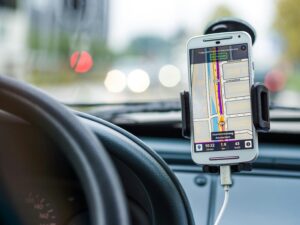1. Select a destination that aligns with your budget

Selecting the right destination is crucial when you’re traveling on a budget. While a place like Hawaii might be on your dream list, the cost of flights alone can be a major expense if you’re based in Nigeria.
Instead, consider beach destinations closer to home, like Cape Verde, which offers stunning scenery without the hefty travel costs.
For travelers in Nigeria who crave tropical vibes, Zanzibar can be a great alternative to far-off islands like the Maldives, and for a vibrant cultural experience, Ghana provides an exciting yet affordable option.
Each destination has its unique beauty, so keep an open mind. You don’t have to cross off bucket-list destinations entirely just save them for later. In the end, budget travel is about making smart choices. A little compromise can open doors to unforgettable adventures nearby.
2. Be Flexible With Travel Dates

While not everyone has the luxury of flexible travel dates, it can be a game-changer for saving money. Avoid peak travel days like Friday through Sunday, and opt for early morning or late-night flights flights at 6 am or 10 pm are often much cheaper than mid-morning or evening options around 9 am or 5 pm.
Additionally, try adjusting your departure and return dates by a few days. Checking flights within a week before or after your ideal travel dates can reveal significant savings.
3. Do thorough research

Doing thorough research is crucial when planning a budget-friendly trip. Rushing into travel plans without taking the time to compare options can lead to overspending and missed opportunities for savings.
While it may seem quicker to make decisions on the spot, taking a little extra time to explore all your options can pay off in the long run.
You can uncover hidden gems and avoid overpriced tourist traps by reading travel blogs, shopping around for the best deals on flights and accommodations, talking to other travelers, and reading reviews.
Researching destinations, activities, and transportation options will help you make informed decisions that fit your budget, ensuring you get the best value for your money. This extra time spent planning can lead to finding discounts, more affordable alternatives, and experiences you wouldn’t have discovered otherwise.
4. Pack lightly and weigh your bags before getting to the airport

Traveling light is one of the most effective ways to cut costs and make your trip more efficient. By sticking to carry-on luggage only, you avoid the hefty fees for checked luggage, which can quickly add up on budget airlines.
It’s also easier to move around without heavy bags, giving you more freedom and flexibility during your travels. To make sure you don’t overpack, consider what you’ll truly need for the trip and leave unnecessary items behind.
If you’re staying in hostels, pack smart by focusing on essentials like lightweight clothing, toiletries, and a few must-have items. You can also reduce your packing load by choosing multi-purpose items.
Before booking your flight, always review the airline’s baggage policy to avoid hidden fees and be fully prepared. Many airlines charge extra for checked bags, and some even have restrictions on carry-on sizes. By researching these details in advance, you can ensure a smooth, budget-friendly journey without surprise costs.
Related Read: Top Strategies to Organize Your Life and Achieve Your Goals
5. Check Visa Costs and Book in Advance to Save Money

Before traveling from Nigeria, it’s crucial to research visa requirements and fees for your destination. Some countries offer visa-free entry for Nigerian travelers, while others charge a fee for short-term stays. By planning, you can choose destinations with more affordable visa processes and avoid unexpected expenses.
In addition to visa costs, booking your flights, accommodation, and transport in advance can help you secure better prices. The closer you get to your travel date, the more likely prices will increase, especially for flights and last-minute accommodations.
Planning ensures you avoid paying extra for less ideal options and helps you stick to your budget.
6. Print Copies of Important Documents to Save Time and Costs

While traveling, it’s always wise to prepare for unexpected situations like losing your passport, driver’s license, or debit card. To avoid major disruptions to your trip, print out copies of these essential documents and keep them in a safe place, such as your carry-on bag.
You should also consider leaving a copy with a trusted family member or friend back home for added security. Having printed copies can save you valuable time and money if you need to report a lost or stolen item.
For example, if your passport is lost, having a copy on hand will make it easier to get a replacement at your country’s embassy or consulate. The same goes for your driver’s license or debit card having copies ensures you’re not stuck without ID or access to funds while waiting for replacements.
Additionally, keeping a digital copy on your phone can be a lifesaver in case you’re in a bind and don’t have access to your physical copies. By being prepared, you can avoid unnecessary delays, expenses, and stress, making your travel experience smoother and more secure.
7. Call the Airline Instead of Waiting in Line to Rebook Canceled Flights

When your flight gets canceled at the airport, waiting in line at the customer service desk can be time-consuming and frustrating. Instead, consider calling the airline’s customer service line directly.
Airline agents can often assist you with rebooking your flight or finding alternate travel options right away, saving you the hassle of standing in a long line.
Calling while you’re in line can be a smart strategy too, as you may find that speaking with an agent over the phone is faster than waiting to speak to someone in person. This approach allows you to multitask and increase your chances of being rebooked quickly, especially during peak travel times when airport staff may be overwhelmed.
8. Avoid Exchanging Money at the Airport ( A Smarter Way to Handle Currency Exchange)

As a Nigerian traveler, exchanging currency at the airport may seem convenient, but it’s often the most expensive way to get foreign cash. Airports typically offer poor exchange rates, and you could end up paying high fees on top of that.
Instead, consider planning by ordering currency through your bank or credit union before you travel. This way, you can lock in better exchange rates and avoid steep airport fees.
Many banks also offer travel money cards that allow you to load multiple currencies, saving you from unnecessary exchange fees while abroad.
Alternatively, using a debit card with no foreign transaction or ATM withdrawal fees is a great way to avoid paying extra cash while traveling. Many Nigerian banks offer debit cards that can be used internationally at a more favorable rate compared to the airport exchanges.
9. Pack Snacks for a More Enjoyable and Cost-Effective Journey

If you’re looking to make a long flight more pleasant and avoid unnecessary expenses, packing your snacks is a game-changer. Airport snack prices can be outrageous, and those overpriced chips and crackers handed out by flight attendants don’t always hit the spot.
By bringing your snacks, you can save money and enjoy healthier, tastier options tailored to your preferences.
Whether it’s a selection of fresh fruit, protein bars, or homemade sandwiches, having your stash ensures you’ll be fueled for the journey ahead without having to settle for overpriced airport fare.
Plus, packing snacks ahead of time allows you to control what you eat, helping you stick to any dietary preferences or restrictions you might have.
In addition to saving money, having your snacks on hand can also make the flight more enjoyable and help stave off hunger pangs during the journey. So, next time you’re flying, don’t forget to pack a few goodies for the ride!
10. Downloading Google Maps Offline is Essential

Arriving in a new country can be overwhelming, especially if you’re unfamiliar with the area or language. One of the first things you’ll want to do is navigate your way around, but relying on internet-dependent maps can quickly become a challenge in places with limited Wi-Fi or expensive data charges.
This is where downloading Google Maps offline becomes crucial, particularly for a Nigerian traveler.
Here’s why it’s so important:
a. Avoiding High Data Roaming Charges: As a Nigerian traveler, international data roaming can be costly. Downloading offline maps ensures you don’t have to rely on expensive mobile data to navigate around the city.
You won’t be charged extra fees for constantly checking your location or searching for directions.
b. No Internet Required: Not all areas in foreign countries will have reliable Wi-Fi or mobile coverage, especially if you’re exploring remote or less-developed regions. Having offline access to Google Maps lets you navigate without needing a connection, ensuring you’re never stranded or lost in a new place.
c. Faster and More Efficient Navigation: When you’re in a new country, you want to get to your destination quickly and without hassle. Without the stress of trying to find Wi-Fi or an open data signal, offline maps provide fast access to directions, which can save you time and energy.
d. Safety and Convenience: Downloading offline maps is not just about convenience—it’s also about safety. In unfamiliar areas, you can easily navigate without drawing attention to yourself or looking lost.
This can help you avoid feeling vulnerable or attracting unwanted attention, which can sometimes happen if you’re relying on a paper map or constantly checking your phone.
In summary, downloading Google Maps offline before arriving in a new country helps you save on data, navigate efficiently, and stay safe. It’s a simple yet essential step to ensure your travel experience is smooth and stress-free.
11. Find hotel deals online or stay in a hostel.

To find great hotel deals, start by researching online platforms like Hotels.com, where you can compare prices and read reviews. Once you’ve found options, check the hotel’s website for direct booking rates and call to ask if they’ll match online prices.
For even better deals, try Priceline’s Express Deals or Hotwire’s Hot Rates, where you can get discounted prices without knowing the exact hotel upfront. If you’re flexible with your accommodation, these methods can help you score a great deal.
Additionally, apps like HotelTonight are perfect for last-minute bookings. For a more budget-friendly option, consider staying in a hostel. Hostels offer much cheaper rates than hotels, sometimes as low as a few dollars per night, making them an ideal choice for travelers on a tight budget.
In addition to the savings, hostels provide a social, community-driven environment where you can meet fellow travelers and share experiences. Many hostels have communal spaces for socializing or organizing group activities, which can further help reduce costs by sharing transportation or tours.
12. Take Advantage of Free Stopovers

When flying from Nigeria, some of the cheapest flights include long layovers often seen as an inconvenience but actually a hidden travel gem. Instead of dreading a long stopover, use it as an opportunity to explore a new place for free!
For example, if you book a flight with Emirates, you might have a layover in Dubai. By contacting the airline, you can sometimes extend that layover for up to 24 hours, giving you a day to explore the city.
Imagine riding camels in the desert, swimming in the Persian Gulf, marveling at the Burj Khalifa, or even indulging in world-class shopping—all in one stopover.
Similarly, if you’re traveling to Europe, consider booking with Qatar Airways for a stopover in Doha or Turkish Airlines for a layover in Istanbul. Many airlines offer these extended layovers, allowing you to explore vibrant cities at no extra travel cost.
A long layover doesn’t have to be a hassle it’s a bonus travel experience!
13. Opt for Public Transportation Over Taxis

Whenever possible, use public transportation instead of taxis, even when arriving in a new country. Local metro, bus, or train services are usually a fraction of the cost of taxis, helping you save significantly on travel expenses.
Besides being budget-friendly, public transportation gives you a chance to experience the local culture and understand the city’s layout more quickly.
To make navigating public transit easier, download local transit apps or maps ahead of time, and consider researching routes to popular sites in advance. Many cities also offer tourist passes or day cards for unlimited travel at a reduced rate.
14. Get a Local SIM Card When Traveling Abroad

Staying connected while traveling doesn’t have to be costly. One of the best ways to save on international roaming fees is to buy a local SIM card in the country you’re visiting. This option often provides better rates for calls, texts, and data than international plans from your home provider.
To make sure you’re fully prepared, follow these steps:
a. Research SIM Card Options Ahead of Time
Before you travel, look up recommended SIM cards for your destination. Traveler forums, social media groups, or sites like TripAdvisor often have advice on the best local providers and where to buy a SIM card at the airport or in the city.
b. Consider Roaming-Friendly Providers
If a local SIM card isn’t feasible, check if your home provider offers affordable international roaming plans. For example, certain providers like 3 Mobile in the UK offer free international roaming in select countries, which can be a good alternative.
c. Verify Your Phone’s Compatibility
Make sure your phone is unlocked and compatible with international SIM cards. This is essential for seamless setup and access to local networks.
d. Purchase Your SIM Card Upon Arrival
Most major airports have kiosks or shops where you can buy local SIM cards as soon as you land. Alternatively, check local stores or convenience shops in your area if you prefer to wait until you’re settled in your destination.
e. Activate and Test the SIM Card
Once you’ve inserted the SIM card, follow the instructions provided or ask the seller to assist you in activating it. This way, you can ensure it’s working properly before you leave the store.
Using a local SIM card not only saves money but also allows you to use maps, translation apps, and social media freely, making your trip smoother and more enjoyable.
15. Learn The Basic Local Language

Learning a few phrases in the local language can go a long way when traveling from Nigeria. In many places, like popular markets in India or tourist spots in Kenya, vendors often have different prices for locals and tourists.
Being able to greet locals, ask prices, or even negotiate in their language can sometimes get you the local rate or help avoid tourist markups.
For instance, knowing how to say “Hello,” “How much?” or “Thank you” can make a big difference. Locals appreciate the effort, and you might even get a warm reception or discounts simply because you took the time to learn their language.
If you can’t become conversational, apps like Google Translate can also help, allowing you to communicate and even bring a little humor into interactions by trying local phrases.
Whether it’s learning a few Swahili words when visiting East Africa or some French phrases for Francophone West African countries, speaking the local language shows respect for the culture and can lead to a friendlier, more affordable experience.
16. Visit Free Art Galleries and Museums

Exploring art galleries and museums is a fantastic way to experience a city’s culture, history, and creativity without spending much money. In many cities, including London, Berlin, and even Lagos, there are numerous art galleries and museums that offer free entry to the public.
These places often feature impressive collections of art, history, and cultural artifacts, giving you a rich experience at no cost.
Even in cities that charge for museum access, many offer discounted or free entry on specific days or times. For example, some museums offer free admission on certain weekdays or during special events.
All it takes is a little research: simply check the museum’s website or search for “free days” or “discounts” before you travel to make the most of your visit.
By visiting free or discounted museums and galleries, you can stretch your travel budget further while still enjoying the educational and cultural highlights of the city. It’s a great way to immerse yourself in local culture and history without breaking the bank.
17. Shop at Local Markets to Save Money

Shopping at local markets is an excellent way to save money while supporting local businesses and experiencing authentic culture. Local markets often offer fresh, seasonal produce, handmade goods, and unique souvenirs at a fraction of the price you’d find in touristy shops.
Since these products are directly sourced from local farmers and artisans, you can often get better quality for a lower price.
For example, in cities like Dublin, areas like Temple Bar host several weekend markets that sell everything from fresh produce to unique, budget-friendly souvenirs. These markets are a great alternative to overpriced stores in tourist hotspots, where products are often marked up for travelers.
Plus, shopping at these markets allows you to try local foods and crafts you might not find in more commercial areas, enhancing your travel experience without exceeding your budget.

